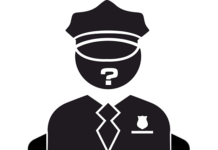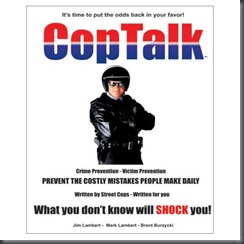Junk Mail & Stolen Identities:
· If you have bills to mail out which contain checks, or something extremely important. Don’t trust it unattended in your mailbox. Give it straight to the mailman, or drop it off at the post office or local mailbox on the corner. Inconvenient you say? I know there has to be a mail collection box within a mile of every house, they’re all over (and alot more secure). It may be inconvenient to drive a block to find a secure drop box, but think of the inconvenience of straightening out your credit if your checks get stolen, forged, and cashed.
· If you throw anything in the garbage with any kind of information about you or your family, cut or tear it up first. Better yet buy yourself a shredder. Every credit card or loan offer you throw away whole can provide a crook with information about you. Take a second to rip them or cut them up. No credit card company is going to issue a card with an application that was taped together from a bunch of little pieces. Or at least they would call to verify the application. This goes for anything you discard with your information on it. You’d be shocked at how many crooks go through garbage looking for things they can use. They don’t work; this is their job. And some are good at it.
· Destroy ALL receipts that have credit card information on it BEFORE you throw it away. All a crook needs is your credit card number, expiration date, and the name on the card. (All listed on the statement form or store receipt you just tossed away) With this information, (they don’t need the actual card), the crooks can order merchandise by phone and have it sent to a bogus address. Weeks later, you get a huge bill, and the crooks made a nice bundle of cash selling the stuff. You cancel the card and the crooks go on to another victim.
· Electronic bill paying. Some banks offer home banking, where you can do basic banking and bill paying by computer. You install a program (free from the bank) on your computer, set up a private password, and you can pay almost all your bills by e-mail. I pay my phone, cable, PG&E, house payment, telephone, almost every bill I have I pay by computer. Secure, and even saves on postage. If you can pay by computer, it takes alot of risk out of paying bills.
· If you suspect mail theft, contact the police or postal authorities. Don’t wait until bills start to mount up from unauthorized use. We don’t chase lost mail, but if you see someone suspicious in the area, taking mail from a mailbox, get a good description of the person and car, and call the police. Chances are we will catch them with alot of other people’s mail, maybe yours.
· Get your mail as soon as possible. The longer it sits, the easier it is to become a target. Most of the time, mail delivery is about the same time every day, give or take an hour. Try to get your mail, or have your children grab your mail as soon as possible after delivery. If your going to go away, make arrangements to have it picked up, or notify the post office to stop delivery during the time you’ll be away.
· Put your outgoing mail out close to the pickup time, or give it directly to the mailman. (We can all hear a mail truck coming up the street; they have a distinctive sound) That little red flag you raise up on the mailbox not only alerts the mailman that you have mail to go, it also alerts the crooks. Thieves actually drive through residential areas looking for raised red flags on mailboxes. Raised red flags usually mean outgoing checks. Like we said, if it is important, drive a block to a secure mailbox.
· If you close out a checking account, burn or destroy (at least cut up) all the unused checks. Don’t assume that just because the account is closed, someone can’t use the checks and create a paper trail leading back to you. Happens all the time. I still get dispatched to forgery cases with forged business checks from a business that closed over 2 years ago in my city; the bad checks are still around.
· Don’t ever give out personal information over the phone. A crook may call claiming to be a representative of a company, asking you personal information such as bank account numbers, social security numbers, credit card numbers, or even password numbers. Don’t give this information out unless you know for sure whom you are talking to. Ask for a call back number, or employee number. Then call back and ask for a supervisor to verify the procedure if you feel uncomfortable about it.





